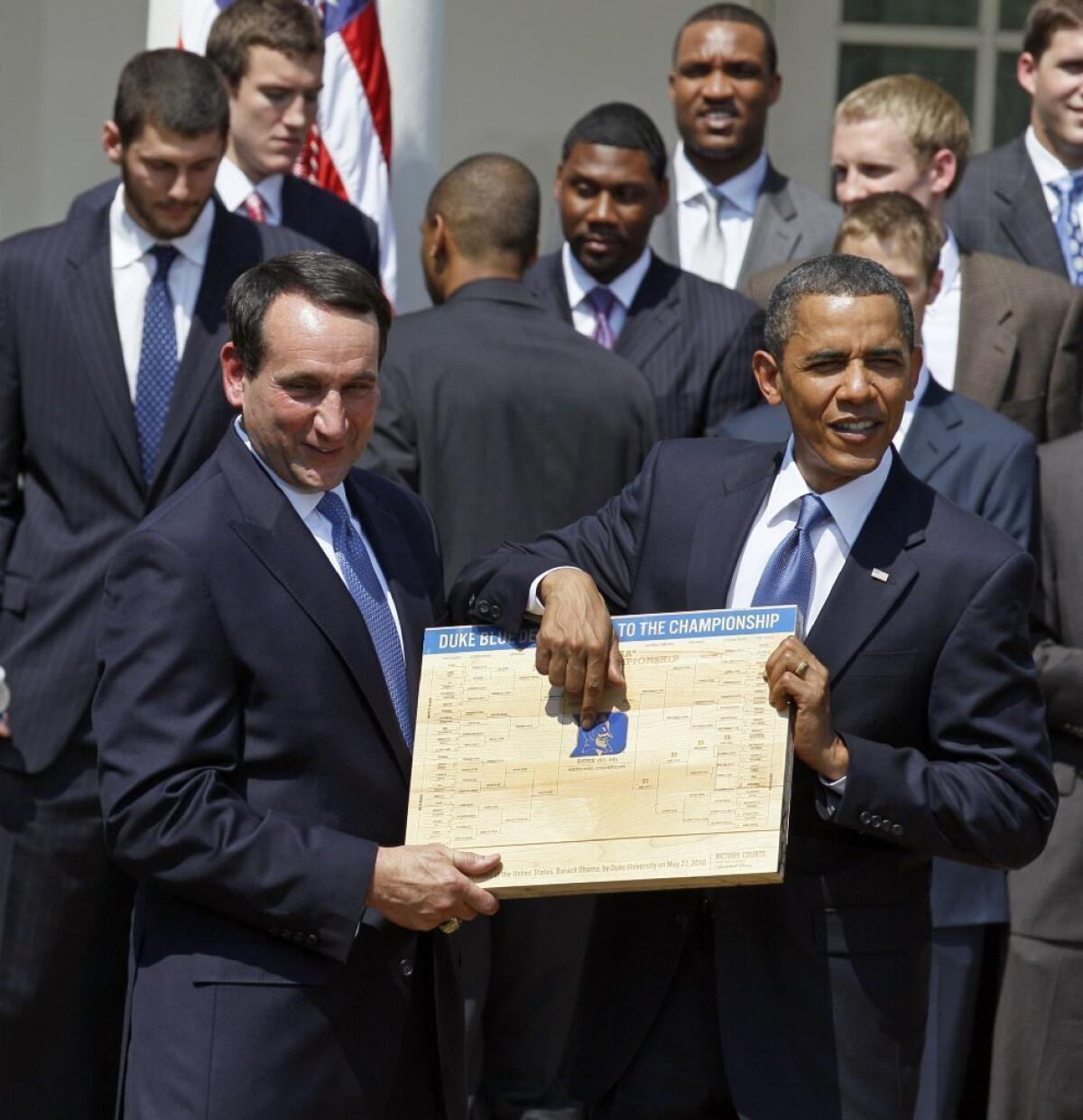U.S. is a loser in business group’s March Madness-style tax bracket

- Share via
WASHINGTON -- If the world’s major economies had a competition like the NCAA basketball tournament, the U.S. would enter as the No. 1 seed -- but a leading business group said the nation’s corporate tax policies would get it bounced in the first round.
The Business Roundtable is using the start of March Madness this week to push Washington to reduce corporate tax rates. The group has created an interactive, 16-nation bracket to compare the countries’ corporate tax policies.
Despite being seeded No. 1 because of the size of its economy, the U.S. gets upset by No. 16 Norway. (A No. 1 seed has never lost to a No. 16 seed in the NCAA basketball tournament).
Norway’s combined corporate tax rate is 28% compared to 39.1% in the U.S., according to the international Organization for Economic Cooperation and Development .
And in this competition, the lower tax rate wins. (Spoiler alert -- the overall champion is Britain).
“It’s time we reclaim America’s home-court advantage by modernizing tax policy in a fiscally responsible way so all U.S. businesses can create jobs, innovate, grow, compete – and win,” said John Engler, president of the Business Roundtable, an association of chief executives of top U.S. companies.
The group, one of the leading business lobbying forces in Washington, is trying to drive home its message as Congress tackles tax reform this year.
Democrats and Republicans agree the U.S. should lower its combined corporate tax rate, which is now the highest among developed nations.
But exactly how low remains a sticking point, as well as whether the savings from eliminating some tax breaks should all go toward reducing the corporate tax rate or should be partly diverted to lower the budget deficit.
The tax bracket challenge is part of a campaign being launched by the Business Roundtable to lower the statutory U.S. corporate rate to 25% and move the nation to a so-called territorial system in which foreign earnings are taxed only in the nation where they were earned.
“America’s economy has great advantages, from world-class workers and productivity to unparalleled institutions of higher education and abundant domestic energy supplies,” said Robert A. McDonald, chief executive of Procter & Gamble Co., and chair of the group’s committee on taxes and fiscal policy.
“However, our corporate tax code is a distinct disadvantage that holds us back,” he said.
ALSO:
Housing starts, building permits climb in February
California continues to lead nation in green technology
Top CEOs more optimistic on economy but don’t plan more hiring
More to Read
Inside the business of entertainment
The Wide Shot brings you news, analysis and insights on everything from streaming wars to production — and what it all means for the future.
You may occasionally receive promotional content from the Los Angeles Times.











